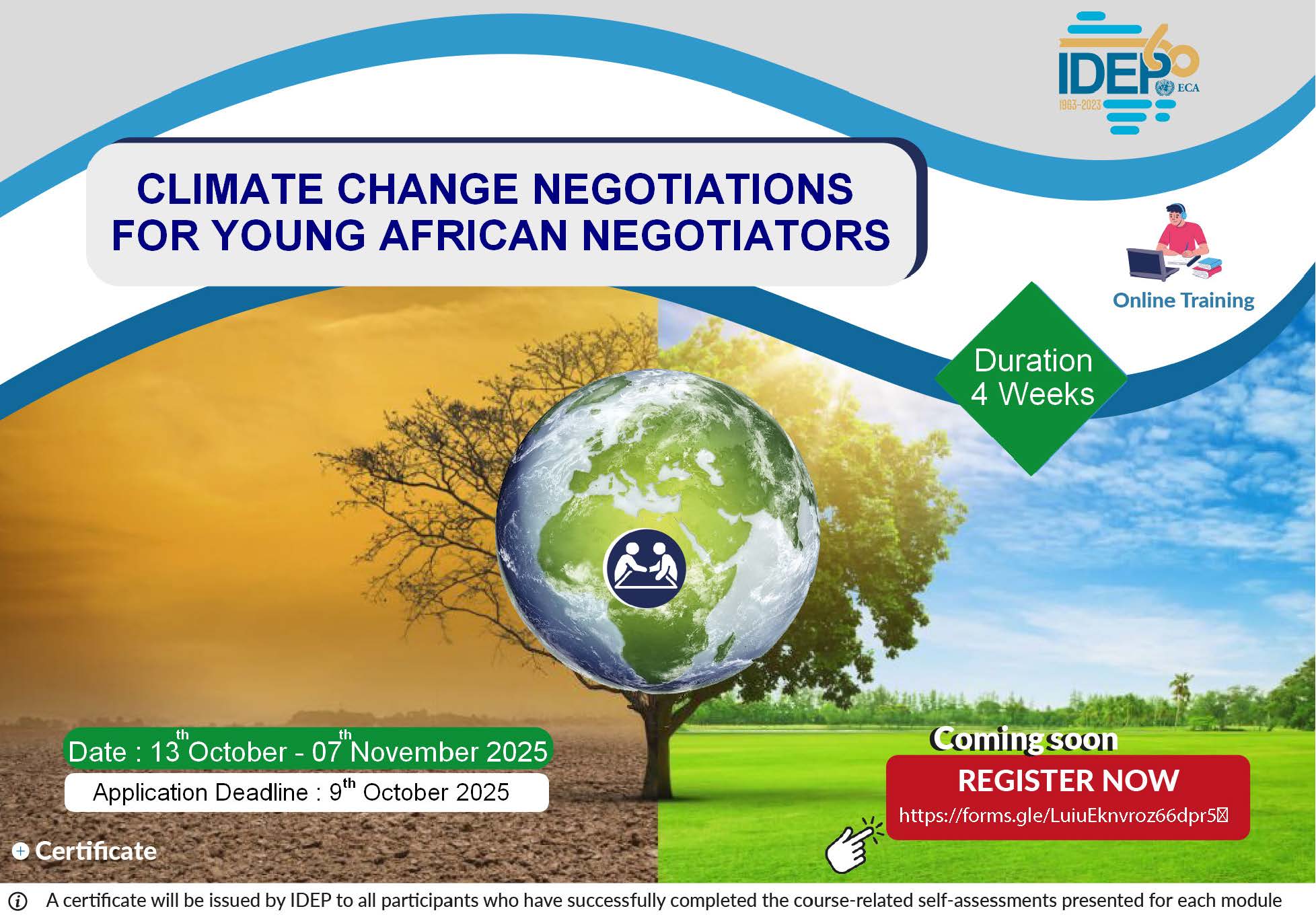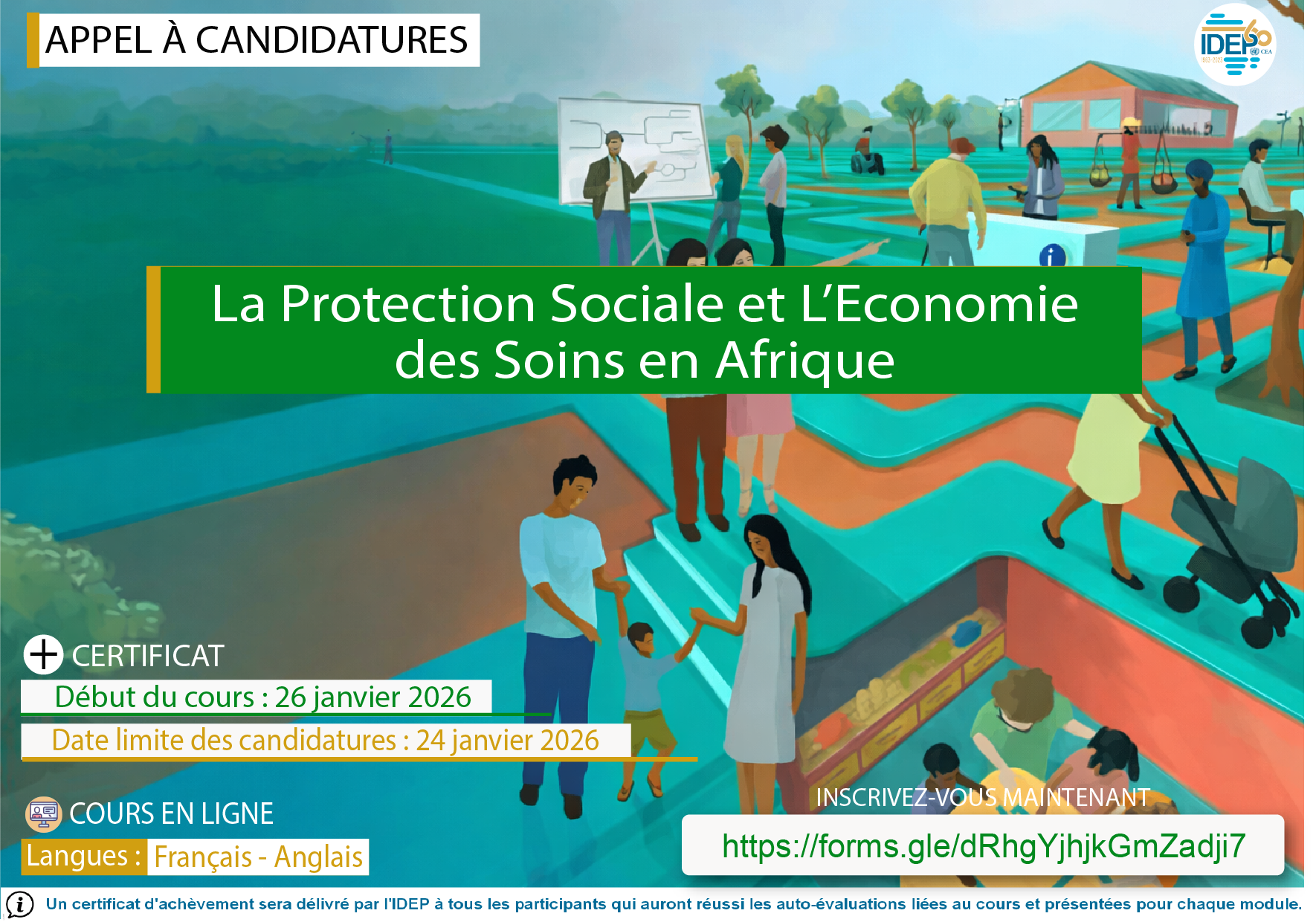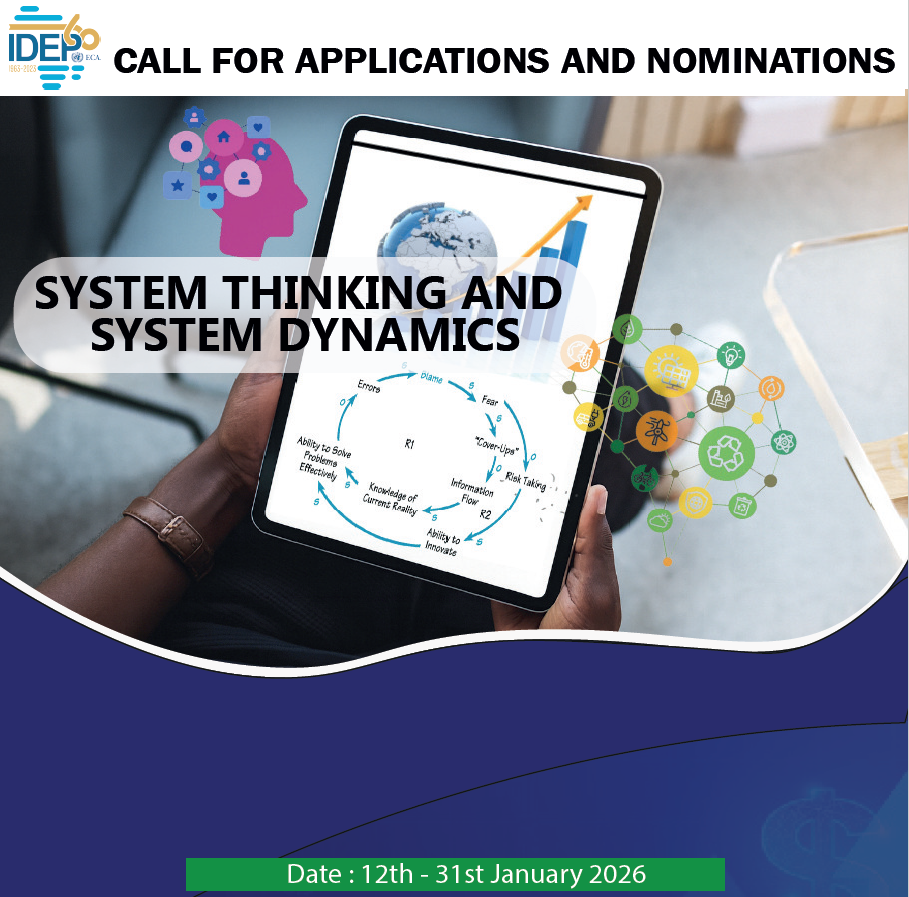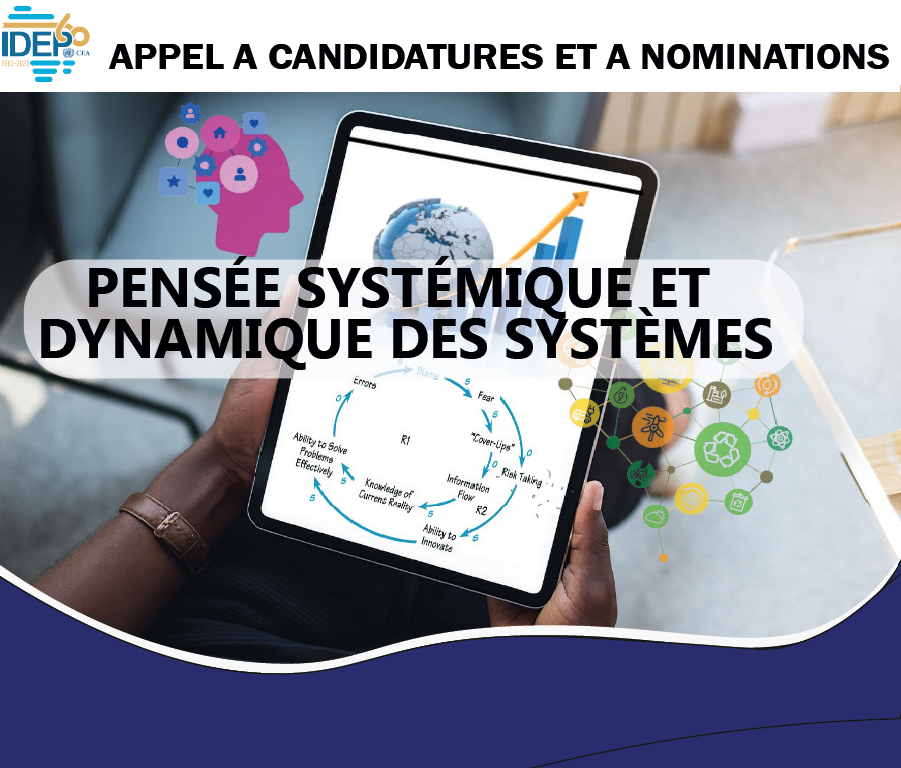IDEP eLearning Platform
African Institute for Economic Development and Planning




PROMOTING LEARNING ON THE GO
Bring Tutoring Right to Your Home.
Take the world best courses, online.
Learning & Fun For Everyone.
African Institute for Economic Development and Planning
Since its creation, IDEP works to assist African governments in their training efforts and capacity building in the areas of economic management and planning. With this regards, it works closely with African member states to assess their needs and develop general courses, specialized and tailored to their frames of senior and middle levels.

The names we are proud of

The multilateral climate change processes have evolved over time from the non-binding commitment under UN Convention to the legally binding commitments for developed countries under the Kyoto Protocol and to the Paris Agreement (PA) that build upon the convention and brings all nations into a common cause to undertake ambitious efforts to combat climate change and adapt to its effects, with enhanced support to assist developing countries. The PA also address the issues of loss and damage.
Following the completion of the PA’s rulebook, the process is now focusing on the implementation of mitigation and adaptation with enhanced support to assist developing countries to achieve their commitments. The PA added the loss and damage into its workstream. This online training will deal with negotiation of work programmes under the following areas; just transition; adaptation mainly dealing with adaptation finance and capacity; operationalization of the loss and damage fund and its assessment; negotiating carbon markets; climate finance in the context of financing adaptation, assess to existing funds, methods of tracking, project development, monitoring and evaluation, gender and youth.


Les sociétés africaines subissent actuellement des transformations majeures qui mettent à l'épreuve leurs systèmes de protection sociale et leurs populations vulnérables.
La première transformation s'opère sur le plan économique. L'Afrique a connu un démarrage fulgurant au XXIe siècle, se hissant au deuxième rang mondial des régions à la croissance la plus rapide entre 2000 et 2015 (UNECA 2015). Toutefois, cette croissance est au ralenti depuis, et sous l'effet persistant de la crise financière mondiale et de la chute des prix des matières
premières. Elle s'est même enrayée ces dernières années ; les crises sanitaires et géopolitiques liées à la pandémie de COVID-19 et à la guerre en Ukraine ayant mis en lumière la grande
vulnérabilité du continent aux facteurs externes. Ces tendances ont entraîné des conséquences désastreuses sur l'emploi et la sécurité économique, compte tenu de la faible diversification de l'économie et de sa dépendance aux industries minières et extractives.

L’égalité des sexes est un droit humain fondamental et un fondement nécessaire à un monde pacifique, prospère et durable. Dans l’Agenda 2030 pour le développement durable et l’Agenda 2063 de l’UA, l’égalité des sexes est reconnue comme un catalyseur essentiel du progrès dans tous les domaines du développement. Les deux cadres qui visent à parvenir à une croissance inclusive et à un développement durable offrent de nouvelles opportunités de changement transformateur pour les femmes et les jeunes en Afrique.
À l’échelle mondiale, la demande d’intégration des perspectives de genre dans le cadre de développement national s’accroît, car on se rend compte que l’égalité et l’équité entre les sexes sont essentielles à la croissance économique et à la réduction de la pauvreté dans les pays développés et en développement.
Le cours sur la gestion des politiques économiques sensible au genre vise à fournir aux décideurs politiques et aux praticiens du développement les compétences et les connaissances nécessaires pour identifier et traiter les préjugés sexistes dans les secteurs économiques et pour analyser les politiques économiques et les budgets dans une perspective de genre.
Le cours vise aussi à renforcer la prise de conscience de l’importance du genre dans la formulation de la politique économique et sa mise en oeuvre, et également approfondit la compréhension qu’ont les participants des rapports entre le genre et la formulation et la gestion de la politique économique. Le cours permettra aussi aux participants de se familiariser avec l’analyse et l’emploi des concepts liés à la problématique genre ainsi qu’avec les outils et les stratégies dans les secteurs économiques. Ce cours est dispensé par l'Institut Africain de Développement Economique et de Planification (IDEP) ; et cette session est uniquement pour les francophones.

The 2030 Agenda for Sustainable Development, adopted by UN Member States in 2015, includes 17 Goals, 169 targets, and 231 indicators, and is anchored in human rights. The SDGs represent a shift from
the earlier Millennium Development Goals (2000–2015) by being more universal, transformative, inclusive, and comprehensive.
However, the pace of progress is falling short. According to The Sustainable Development Goals Report 2025, fewer than one in five (about 16.7 %) of SDG targets are currently on track globally. In 2025, an estimated 808 million people, roughly 9.9 % of the world population, are living in extreme poverty under the updated threshold of USD 3.00/day (2021 PPP). As far as gender equality is concerned, there is still a lot of work to be done; by 2030 approximately 351 million women and girls will still be living in extreme poverty (UNSD, 2025). Despite gains in education completion rates, 272 million children and youth remain out of school, and learning outcomes are worsening in many places. Conflicts and wars inflict a devastating toll on SDGs as the number of forcibly displaced and stateless people could reach 139.3 million across 136 countries and territories by end-2025 (UNHCR projections).


Le cours permettra aux apprenants de comprendre les implications des mégatendances mondiales pour l'avenir du monde et leurs implications pour l'Afrique. Ils acquerront des connaissances sur le rôle de la prospective stratégique dans la conceptualisation des stratégies de développement à long terme pour le continent. Ils auront également une bonne compréhension des concepts clés et des différentes étapes analytiques de l'approche prospective stratégique.
Le cours couvrira les modules suivants :

The course will capacitate learners on the implication of global megatrends for the future of the world and its implication for Africa. They will receive insights into the role of strategic foresight in conceptualizing long-term development strategies for the continent. They will also have a good understanding of key concepts and various analytical stages of the strategic foresight approach.
The course will cover the following modules:
Module 2: History, development and practices of foresight
Module 3: The fundamentals of foresight
Module 4: Foresight approaches and tools
Module 5: From anticipation to action






